- Home
- Stephanie Laurens
THE LEGEND OF NIMWAY HALL: 1750 - JACQUELINE Page 2
THE LEGEND OF NIMWAY HALL: 1750 - JACQUELINE Read online
Page 2
After spreading the rag over her hands, almost ceremoniously, she accepted the stone. The weight was similar to an ornament of that size fashioned from gold and crystal. Balancing the stone in its mounting on one palm, she used the edges of the rag to wipe more of the dirt away; it clung to the metal more tightly than it had to the smooth stone.
“I’ll have to use water to clean the rest off.” She peered at the stone. “But it does seem to be some sort of ornament.”
Crawley grunted. “Strange place to bury an ornament.”
The men returned their attention to the hole.
Intending to shake the loosened dirt from the rag, Jacqueline tipped the ornament, stone first, into her palm—
The stone softly glowed.
Quickly, she righted it, but even as she stared at it, the glow faded, and the stone returned to its previous, not-quite-translucent milky-white state.
She felt her heart thud.
“Well, I’ll be damned!”
Startled, she looked at Crawley—it was he who had spoken. He was staring at his feet.
Following his gaze, she saw water bubbling up through the hole left by the ornament.
Cradling the stone closer, she beamed. “We have water!”
“Water!” The call was taken up and relayed to all the men.
Most came running to look.
As Crawley clambered out of the hole, Mainard shook his head and met Jacqueline’s eyes. “That”—with a nod, he indicated the ornament—“was buried right on top of the spring. Like a plug.”
Smiling, she held up the ornament, supporting it with both hands. “It seems it’s something of a good luck charm, then.” She glanced around at the men. “At least, for this household.”
Everyone grinned and agreed.
Crawley called the men to order, pointing out that the deeper hole was filling fast and would soon overflow and start to fill the basin of the lake. He gave orders for the men to finish off preparing the lake bed.
Leaving Crawley and the men to that task, Jacqueline accepted Mainard’s support to climb up the bank and onto the path. Carrying the ornament partially wrapped in the rag, she walked with the dowser back toward the house.
When they reached the path at the rear of the house, Mainard halted and bowed to her. “Thank you for sending for me, Miss Tregarth. It was an interesting exercise, opening up your old spring.” He glanced back at the activity around the lake. “I confess I have never come across a…stopper like that plugging the neck of a spring.”
She glanced at the ornament, now nestled in the crook of her arm. “Indeed. It does seem hard to believe that someone buried it in that very spot.” She looked up and met Mainard’s eyes. “But there are stranger tales about these parts, several of which involve Nimway Hall. This is simply another to add to our list.”
“Indeed, miss.” Mainard bowed. “My horse is in the stable. I will leave you here. Once again, thank you for your custom.”
She inclined her head and watched the dowser walk off to the stable, then she looked again at the ornament. She raised it to the sunshine, watching the light slide over the surface of the now-dull stone. “I fancy you will clean up very nicely, and then I’ll put you on show to be feted as the Hall’s good luck charm.”
Smiling, she lowered the ornament. Holding it between her hands, she walked toward the house.
“I have never been lost in my life!” Tired, dusty, and frustrated, Lord Richard Edward Montague Devries—deeply reluctant darling of London society—plunked himself down on a fallen log. Exasperated, he stared at the trees surrounding him, at the woodland stretching in every direction as far as his eyes could see. “Damn it, Malcolm! Where the devil are we?”
His horse, a hefty dappled-gray gelding who went by the name of Malcolm the Great, continued to forage through the leaf mold carpeting the ground and didn’t deign to respond.
With his forearms on his knees and Malcolm’s reins loosely looped in his long fingers, Richard hung his head and sighed.
He’d fled London two days before, leaving his lodgings in St. James as if merely going for a morning ride in the park. At the corner of Jermyn Street, he’d been joined by one of his closest friends, Sir Toby Lackland, and they’d ridden into the park. Then through the park and on. They’d kept riding, ultimately out along the highway and on via Andover and Salisbury. The ruse had been necessary; after the events of the night before, he’d needed to avoid alerting anyone to his departure and, even more, his destination.
He’d been glad of Toby’s company—to ensure he escaped London without hindrance.
That was what his undeniable good fortune had reduced him to—fleeing the capital, with his friends watching his back.
Richard picked up a twig and poked at the dead leaves between the toes of his riding boots. As the second son of the wealthy and powerful Marquess of Harwich, ever since Richard had gone on the town at twenty, he’d featured on the matchmakers’ lists. His mother being a Montague only increased his eligibility, his desirability as a husband for the swarms of young ladies who every year descended on the capital to hunt through the ballrooms for a suitable match.
He’d nearly been caught—trapped—long ago, but he’d learned his lesson well. Subsequently, when one of his father’s distant cousins had died and left Richard a manor house in Wiltshire along with substantial accumulated wealth, he’d foreseen the inevitable reaction and had remained alert and very much on guard. He’d successfully avoided the ballrooms for more than a year and thereafter neatly sidestepped the multitude of snares the matchmakers had laid before his feet. He’d been twenty-five at the time; as the years had rolled on and he’d continued to decline to succumb, the matchmakers had grumbled and largely given up, viewing him as a lost cause.
As a gentleman unlikely to stumble and fall into their grasping arms.
All had been well for several years, his life relatively peaceful, then earlier that year, his paternal great-aunt, Lady Dulcimea Caverthorne, had informed the family at large that she was naming him her heir. Dulcimea was nowhere near her deathbed, but she was an exceedingly wealthy, childless widow, and other family members had been prodding and pricking her to declare the disposition of her estate. So she had. Apparently, said other family members had forgotten that Richard was Lady Dulcimea’s favorite and had been for decades; pushed too far, she’d declared enough was enough and had stated her final wishes, which she’d signed and sealed in her will.
Being her heir, combined with the land and wealth he already commanded, rendered him almost as potentially wealthy as his older brother, Gideon, who would inherit their father’s title and entailed estate. Given that the prospect of Dulcimea’s wealth would immediately catapult Richard to the giddy pinnacle of the matchmakers’ lists, he’d been relieved that only the family had been privy to Dulcimea’s declaration.
A week ago, someone had blabbed and let the until-then familial secret out, and the news had flashed through the ton like wildfire.
Within a day, Richard had been drowning in invitations to balls, soirées, entertainments of all kinds, and house parties galore. Bad enough, but as soon as he’d shown his face in public, he’d been accosted by older gentlemen clearly hounded by their wives to secure his presence at their dinner tables—on two occasions, he’d been buttonholed in the street, followed by three separate incidents in his clubs. In his clubs, for God’s sake!
For several days, the situation had been an open joke among his closest friends.
Their laughter had come to an abrupt end three nights ago.
After spending a convivial evening with Toby and a group of likeminded others, Richard, Toby, and another of their close circle, Lord Charles Herries, had ambled out of the door of what was presently the most fashionable hell in town and had turned their footsteps toward their beds. It had been late, somewhere in the small hours, and with the street flares burning low and its streets and lanes cloaked in shadows, London had slumbered around them. On reaching Piccadilly,
the three of them had gone their separate ways; Richard had headed south via a lane to St. James, his usual route into that precinct of well-heeled bachelors, while the other two went north into Mayfair, toward their parents’ houses.
Luckily for Richard, Toby and Charles had halted in Piccadilly to argue some point. They’d been within earshot of Richard’s battle cry when, in the dark confines of the alley, he’d been set upon by four ruffians. Two, Richard could have managed on his own; he’d been carrying his swordstick and was an expert with a blade. But four…
Toby and Charles had come running, naked steel gleaming in their hands, and the ruffians, already nursing several wounds, had sworn and run off, dragging with them the one of their number Richard had already incapacitated.
After catching his breath, with his friends at his back, Richard had given chase.
He, Toby, and Charles had burst out of the alley to see the ruffians piling into a coach. One man hung on the back, and at the sight of them, he’d called to the driver, who had whipped up the horses. The coach door had swung, then been hauled shut, and the coach had clattered off along the empty street.
That the four ruffians had had a coach waiting…understanding had sent a chill through the three of them and through Richard in particular.
The men had come to seize him—to kidnap him.
Ascertaining their motive required little thought.
Someone had paid the blackguards to kidnap him in order to stage some compromising situation, which would force him to offer for some young lady’s hand; although he’d spent the rest of the night discussing possibilities with Toby and Charles over several large brandies, they’d all felt certain of that.
They’d also agreed that he needed to treat the incident seriously and take himself off, out of harm’s way, given that none of them could immediately discern a way to nullify the root cause of his problem.
Charles had dropped a heavy hand on Richard’s shoulder. “We’ll find some way, but for now, you need to play least in sight.”
Toby had grunted. “Better still, disappear altogether. And not just out of London. Nowhere in society is safe for you now.”
Grim, Richard had nodded. “And I won’t be safe until we find some way to make me less eligible.”
Toby had soberly appended, “Without doing something of which your mother wouldn’t approve.”
They’d all agreed on that as well; all three had a healthy respect for the Marchioness of Harwich.
Richard heaved another part-irritated, part-exasperated, part-resigned sigh. He’d spent the last twelve years gracing the circles of society’s upper echelons. Leaving London as he had—being driven from it—had felt like a form of rejection. A repudiation of his birthright.
In truth, while riding west with nothing to do but think, he’d reached the point of deciding against marriage altogether. After his one and only brush with love had ended so disastrously—with him learning from the young lady’s own lips that her liking for him arose from considerations of his wealth and station and had nothing to do with affection or even respect for him, the man—his view of matrimony had cooled. Given what he’d since been privileged to see of his brother’s marriage—a union based on dynastic considerations and mutual respect that had deteriorated into a hellish relationship that had deeply scarred Gideon and left his wife, Melissa, a temperamental shrew—Richard’s aversion to marriage had only grown.
The latest attempts to force marriage on him had deepened his distrust of matrimony, the state, to the point of outright rejection. His brother had already fathered two sons; there was no pressing need for Richard to marry.
Taking refuge with his maternal uncle, the Bishop of Bath and Wells, a devout bachelor, had seemed the obvious answer to his immediate need. He could sit in His Grace’s palace and lick his unexpected but nevertheless stinging wounds while taking sage counsel.
That had been his plan as he’d ridden out of London on the morning following the attack.
After a thankfully uneventful journey, he and Toby had parted ways the previous afternoon in Yeovil. While Toby had continued on to visit his ancestral acres near Sidmouth, Richard had struck north. He’d spent last night in a small inn just north of Yeovil, and this morning, he’d set off on what should have been a relatively easy last stage of about twenty miles, riding across country to Wells.
His gaze on his boots, he shook his head. By now, he should have been relaxing in the comfort of his uncle’s library, regaling the bishop with the details of his close escape. Instead, he—who had hunted since he could walk and had never been lost in any woods or forests before—was sitting in this accursed wood with no idea which way to go.
He dropped the twig, raised his head, and looked around again. There were no real paths, not even bridle paths, to follow through the trees, just spaces and clearings through which to navigate, all covered with a carpet of long-fallen leaves.
Malcolm the Great stood nearby, cropping a patch of thin grass. Other than the chirping of birds in the canopies high above and the occasional rustle of a squirrel or rabbit, the wood remained quiet.
Given the sunshine slanting through the shifting leaves to dapple the forest floor, it was difficult to imagine the somnolent quiet as menacing, yet Richard nevertheless felt trapped and, worse, as if something—the very air—watched and waited.
For what, he didn’t know.
He’d noticed a sign just before he’d ridden into the trees, naming this Balesboro Wood.
A bale was an evil force; he should, quite clearly, have taken due note and stuck to the lanes. But the lanes would have led him far afield, the route much longer, and he knew that all he had to do was head directly north and he would eventually reach Wells.
“Yet here I sit…” Stifling another sigh, he rose and stretched, then walked to Malcolm the Great.
The huge gelding was favoring his off-front leg—another unexpected problem. Richard lifted the hoof and inspected it again, but the thick sliver of wood was still there, wedged between the iron shoe and the pad of the hoof. If he tried to tease the sliver out with his knife, he could well send a splinter deeper into the softer part of the hoof and do significantly greater damage. He needed to find a farrier who would have the right tools to safely remove the sliver.
Lips setting, he released the hoof, straightened to his full height, and set his fists on his hips. Enough of bemoaning his state. The angle of the sunbeams and the cooling temperature told him the sun was setting, the day slowly dying. He had next to nothing with him beyond a few changes of clothes thrust into his saddlebags. He hadn’t been able to bring anything that looked like luggage with him, much less his valet and groom. It might be summer, but spending the night sleeping rough in this wood didn’t appeal; quite aside from appeasing his rumbling stomach, he needed to find shelter, and that, relatively soon.
From the slanting light, he could deduce which way was north, but to that point, the knowledge hadn’t helped him. “Which way?” he murmured.
Almost as if in answer, he heard the distant rumble of voices. Male voices.
Perhaps woodsmen who could direct him to the nearest village. With a tug on the reins and a click of his tongue, he got Malcolm the Great’s attention, and leading the huge horse, Richard started walking toward the voices.
The men weren’t moving, either toward him or away; the sound of their voices grew louder the farther Richard walked.
Innate caution stopped him from calling out; there were at least two men, and he was, after all, a lone traveler lost in these woods, and his horse was worth a pretty penny, not to mention the ring on his hand and the sword at his hip.
Eventually, he reached a glade that ended in a shallow rise beyond which, if all he could see and hear spoke true, lay a dip of some sort. The men were in the dip and still speaking. They weren’t talking loudly but seemed to be standing and discussing something.
Richard halted a few yards from the upward slope of the rise. Ears flicking, Malcolm the Great
halted silently beside him.
From beyond the rise, in a plainly educated voice, came the words, “Very nice work, Morgan. I knew I could rely on you. Your contrivance has achieved exactly what I needed. Well done!”
Something in the gentleman’s tone—a tinge of unholy excitement—fed Richard’s caution. The question of what “contrivance” a gentleman might be examining deep in a wood gave him further reason to exercise discretion.
“Thank ye, sir,” came a reply in a deeper, rougher, countryman’s voice—presumably the lauded Morgan. “Do you want it left as it is? Or should we look to gradually dismantle it, like? When you give the word, o’course.”
After a second’s debate, Richard looped Malcolm the Great’s reins around a branch, then silently crept up the rise. He was an expert huntsman; he knew how to move through woodland without alerting his prey.
“No, don’t repair it—at least, not yet.” The gentleman went on, “I want the farmers as well as the miller in dire straits before I make a move.” After a moment’s cogitation, the gentleman decided, “It will serve me best to leave this construction of yours in place until I’m certain of gaining all I want from it.”
Richard was curious to discover what “the construction” was. He dropped to all fours as he neared the crest of the rise. He thought the men were facing his way, and he now had no wish to be spotted eavesdropping.
As he eased toward the top of the rise and, very gradually, raised his head, he heard Morgan reply, “Aye, sir. As they haven’t found it yet, there’s no reason they will. I’d say it’s safe to leave well enough alone—no need to keep checking on it.”
“No, indeed,” the gentleman concurred. The scuffing of feet on leaves suggested the pair were now moving away, heading to Richard’s right. “The less chance of any of us being spotted near here, the better. Come on. We’d better get going.”
Sure, now, that something underhanded was afoot, Richard raised his head enough to peer over the rise. He found himself looking down into a narrow valley. A decent-sized stream burbled over a rocky bed that wended its way along the valley bottom.

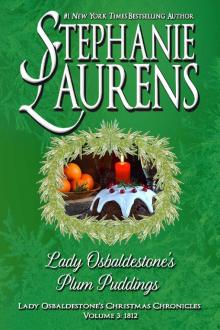 Lady Osbaldestone’s Plum Puddings: Lady Osbaldestone’s Christmas Chronicles Volume 3
Lady Osbaldestone’s Plum Puddings: Lady Osbaldestone’s Christmas Chronicles Volume 3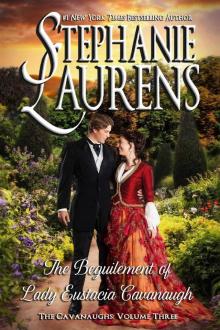 The Beguilement of Lady Eustacia Cavanagh: The Cavanaughs Volume 3
The Beguilement of Lady Eustacia Cavanagh: The Cavanaughs Volume 3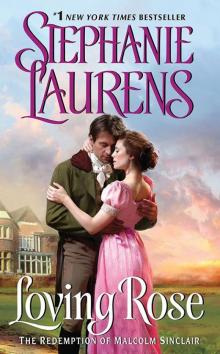 Loving Rose: The Redemption of Malcolm Sinclair (Casebook of Barnaby Adair)
Loving Rose: The Redemption of Malcolm Sinclair (Casebook of Barnaby Adair)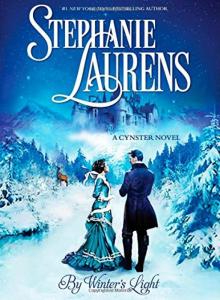 By Winter's Light
By Winter's Light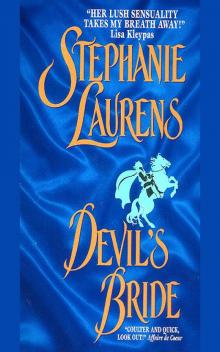 Devil's Bride
Devil's Bride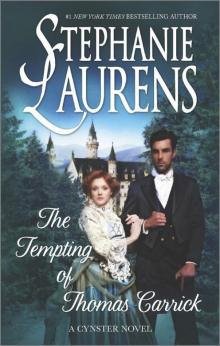 The Tempting of Thomas Carrick
The Tempting of Thomas Carrick![Cynster [22.00] A Match for Marcus Cynster Read online](http://i1.bookreadfree.com/i/03/16/cynster_[22_00]_a_match_for_marcus_cynster_preview.jpg) Cynster [22.00] A Match for Marcus Cynster
Cynster [22.00] A Match for Marcus Cynster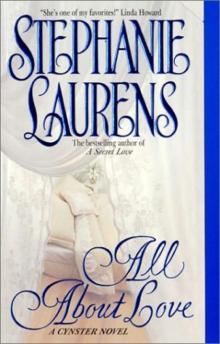 All About Love c-6
All About Love c-6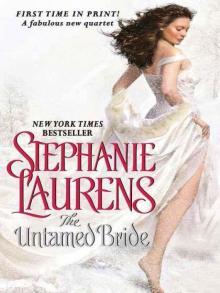 Cobra 01 The Untamed Bride
Cobra 01 The Untamed Bride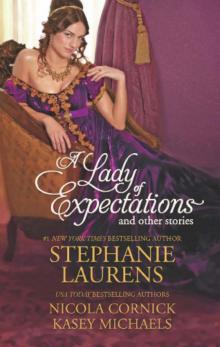 A Lady of Expectations and Other Stories
A Lady of Expectations and Other Stories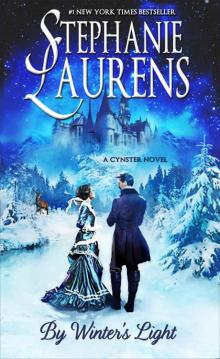 By Winter's Light_A Cynster Novel
By Winter's Light_A Cynster Novel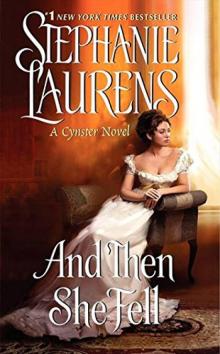 And Then She Fell
And Then She Fell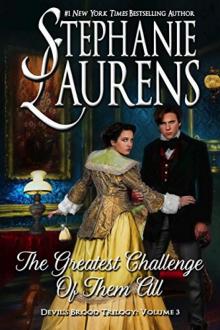 The Greatest Challenge of Them All
The Greatest Challenge of Them All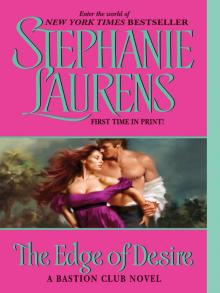 The Edge of Desire
The Edge of Desire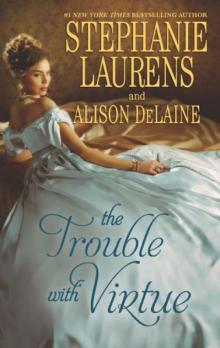 The Trouble With Virtue: A Comfortable WifeA Lady by Day
The Trouble With Virtue: A Comfortable WifeA Lady by Day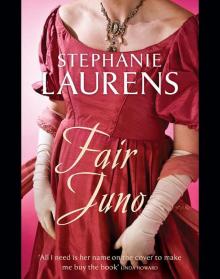 Fair Juno
Fair Juno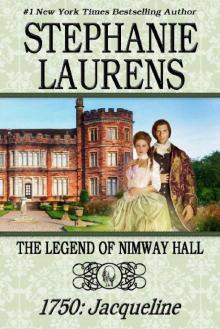 THE LEGEND OF NIMWAY HALL: 1750 - JACQUELINE
THE LEGEND OF NIMWAY HALL: 1750 - JACQUELINE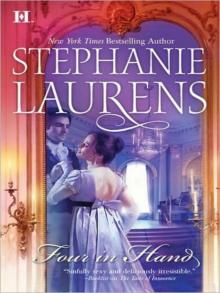 Four In Hand
Four In Hand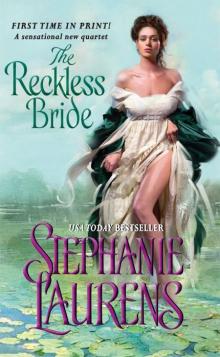 The Reckless Bride
The Reckless Bride Stephanie Laurens Rogues' Reform Bundle
Stephanie Laurens Rogues' Reform Bundle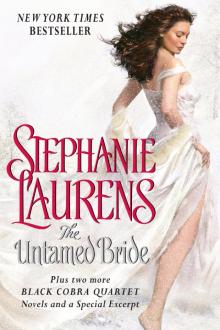 The Untamed Bride Plus Black Cobra 02-03 and Special Excerpt
The Untamed Bride Plus Black Cobra 02-03 and Special Excerpt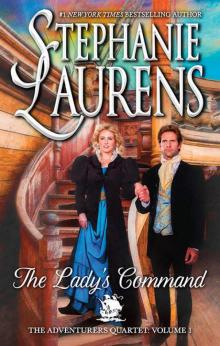 The Lady's Command (Adventurers Quartet #1)
The Lady's Command (Adventurers Quartet #1)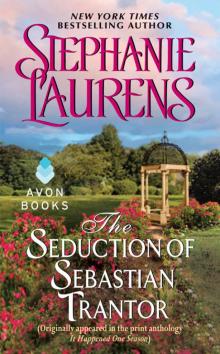 The Seduction of Sebastian Trantor
The Seduction of Sebastian Trantor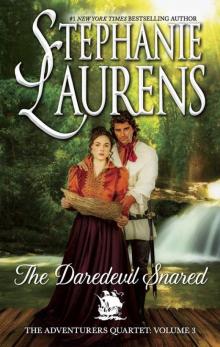 The Daredevil Snared (The Adventurers Quartet Book 3)
The Daredevil Snared (The Adventurers Quartet Book 3)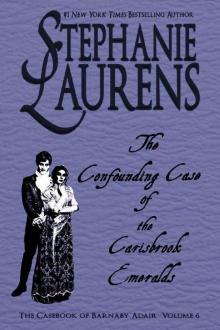 The Confounding Case Of The Carisbrook Emeralds (The Casebook of Barnaby Adair 6)
The Confounding Case Of The Carisbrook Emeralds (The Casebook of Barnaby Adair 6)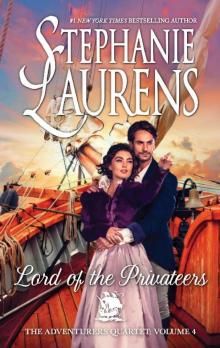 Lord of the Privateers (The Adventurers Quartet)
Lord of the Privateers (The Adventurers Quartet)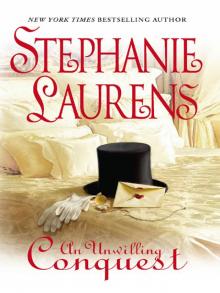 An Unwilling Conquest
An Unwilling Conquest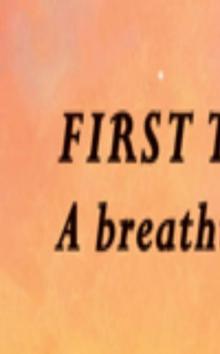 Brazen Bride
Brazen Bride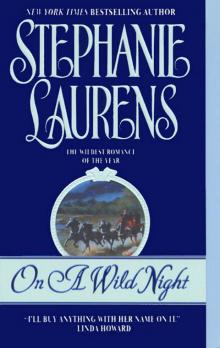 On a Wild Night
On a Wild Night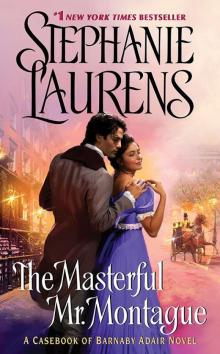 The Masterful Mr. Montague: A Casebook of Barnaby Adair Novel
The Masterful Mr. Montague: A Casebook of Barnaby Adair Novel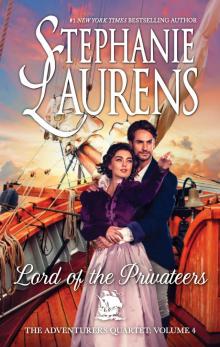 Lord of the Privateers
Lord of the Privateers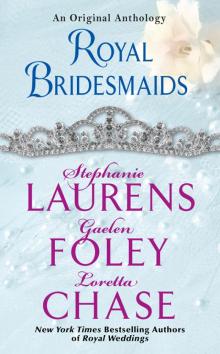 Royal Bridesmaids
Royal Bridesmaids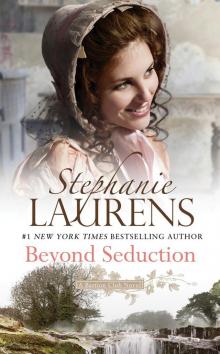 Beyond Seduction
Beyond Seduction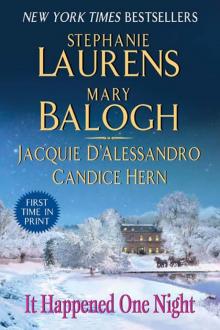 It Happened One Night
It Happened One Night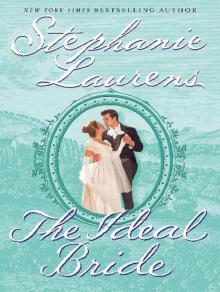 The Ideal Bride
The Ideal Bride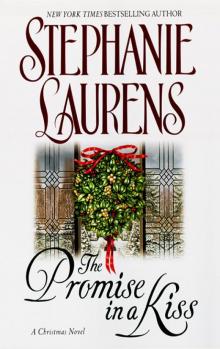 The Promise in a Kiss
The Promise in a Kiss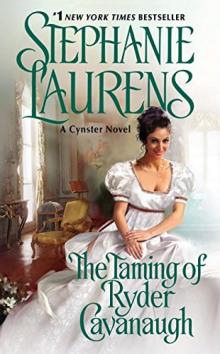 The Taming of Ryder Cavanaugh
The Taming of Ryder Cavanaugh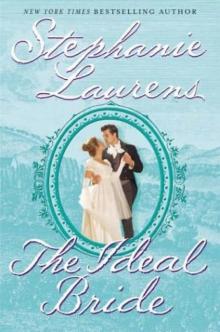 The Ideal Bride c-12
The Ideal Bride c-12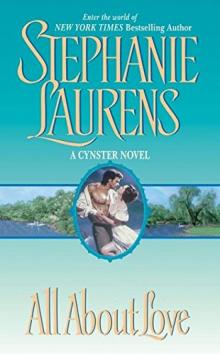 All About Love
All About Love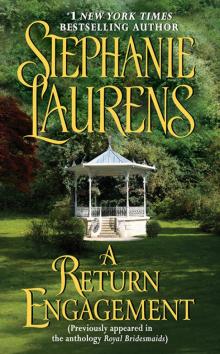 A Return Engagement
A Return Engagement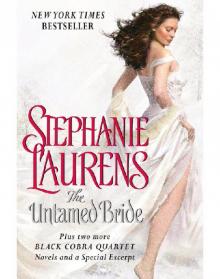 The Untamed Bride Plus Two Full Novels and Bonus Material
The Untamed Bride Plus Two Full Novels and Bonus Material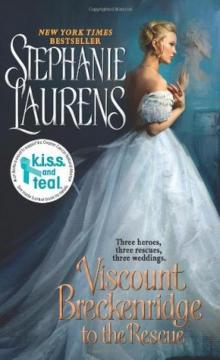 Viscount Breckenridge to the Rescue
Viscount Breckenridge to the Rescue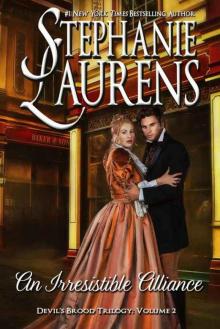 An Irresistible Alliance (Cynsters Next Generation Novels Book 5)
An Irresistible Alliance (Cynsters Next Generation Novels Book 5)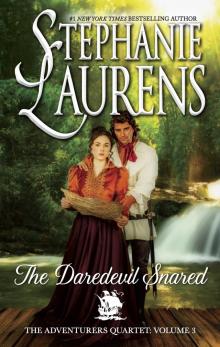 The Daredevil Snared
The Daredevil Snared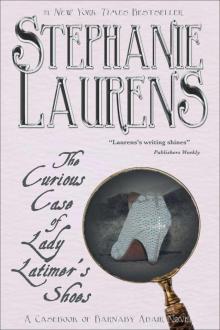 The Curious Case of Lady Latimer's Shoes: A Casebook of Barnaby Adair Novel
The Curious Case of Lady Latimer's Shoes: A Casebook of Barnaby Adair Novel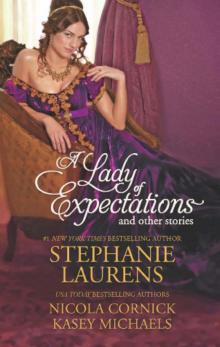 A Lady of Expectations and Other Stories: A Lady of ExpectationsThe Secrets of a CourtesanHow to Woo a Spinster
A Lady of Expectations and Other Stories: A Lady of ExpectationsThe Secrets of a CourtesanHow to Woo a Spinster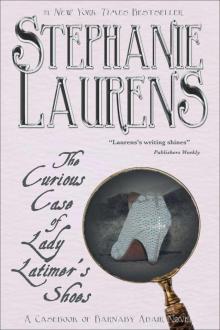 The Curious Case of Lady Latimer's Shoes: A Casebook of Barnaby Adair Novel (The Casebook of Barnaby Adair)
The Curious Case of Lady Latimer's Shoes: A Casebook of Barnaby Adair Novel (The Casebook of Barnaby Adair)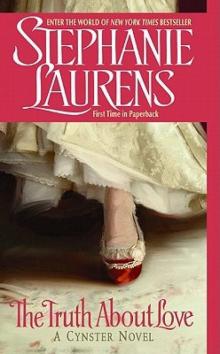 The Truth About Love
The Truth About Love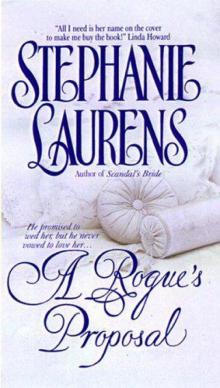 A Rogue's Proposal
A Rogue's Proposal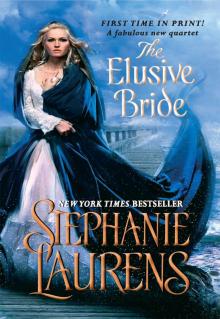 The Elusive Bride
The Elusive Bride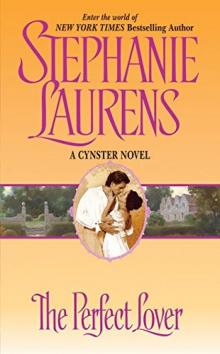 The Perfect Lover
The Perfect Lover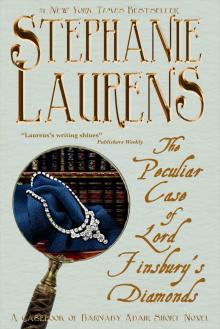 The Peculiar Case of Lord Finsbury's Diamonds: A Casebook of Barnaby Adair Short Novel
The Peculiar Case of Lord Finsbury's Diamonds: A Casebook of Barnaby Adair Short Novel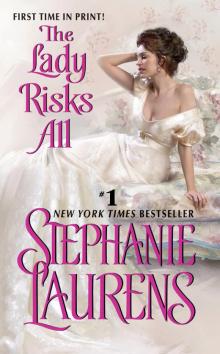 The Lady Risks All
The Lady Risks All The Murder at Mandeville Hall: The Casebook of Barnaby Adair: Volume 7
The Murder at Mandeville Hall: The Casebook of Barnaby Adair: Volume 7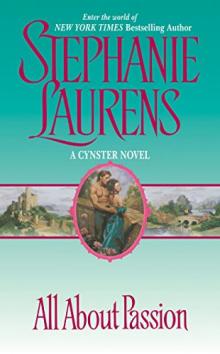 All About Passion
All About Passion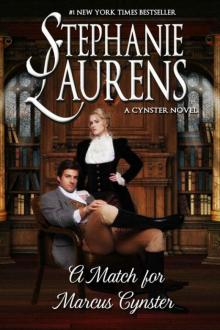 A Match for Marcus Cynster
A Match for Marcus Cynster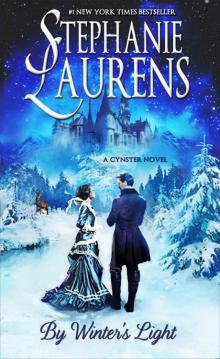 By Winter's Light: A Cynster Novel (Cynster Special Book 2)
By Winter's Light: A Cynster Novel (Cynster Special Book 2)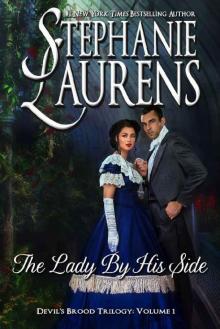 The Lady By His Side
The Lady By His Side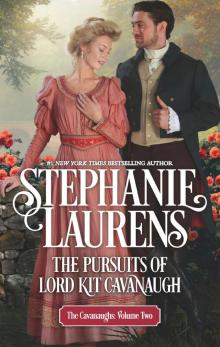 The Pursuits of Lord Kit Cavanaugh
The Pursuits of Lord Kit Cavanaugh Tangled Reins
Tangled Reins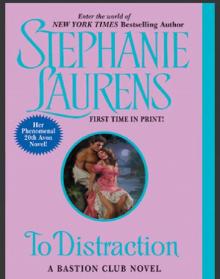 To Distraction
To Distraction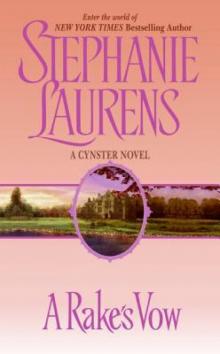 A Rake's Vow
A Rake's Vow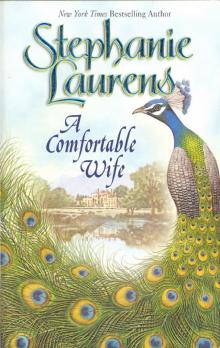 A Comfortable Wife
A Comfortable Wife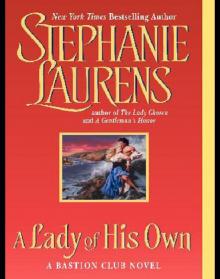 A Lady of His Own bc-3
A Lady of His Own bc-3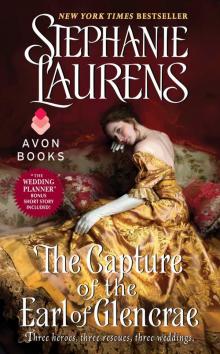 The Capture of the Earl of Glencrae
The Capture of the Earl of Glencrae Scandals Bride c-3
Scandals Bride c-3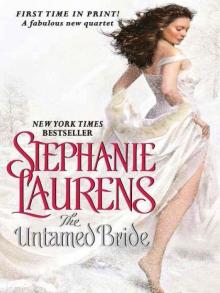 Untamed Bride
Untamed Bride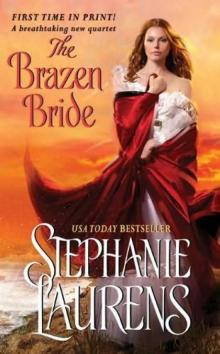 The Brazen Bride
The Brazen Bride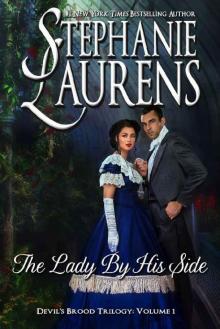 The Lady By His Side (Cynsters Next Generation Novels Book 4)
The Lady By His Side (Cynsters Next Generation Novels Book 4)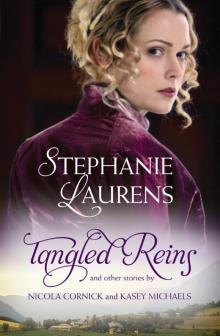 Tangled Reins and Other Stories
Tangled Reins and Other Stories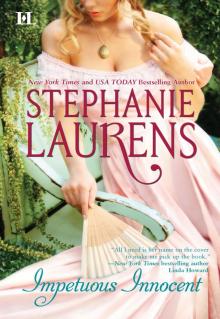 Impetuous Innocent
Impetuous Innocent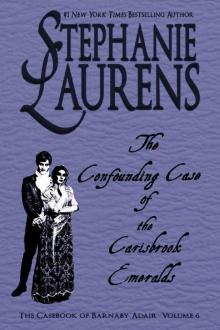 The Confounding Case Of The Carisbrook Emeralds
The Confounding Case Of The Carisbrook Emeralds Stephanie Laurens - B 6 Beyond Seduction
Stephanie Laurens - B 6 Beyond Seduction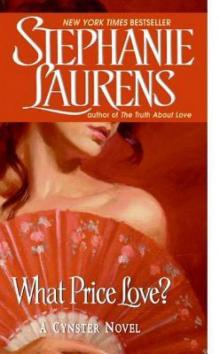 What Price Love?
What Price Love?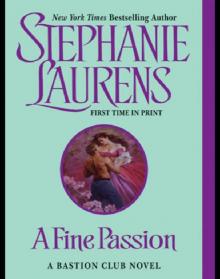 A Fine Passion
A Fine Passion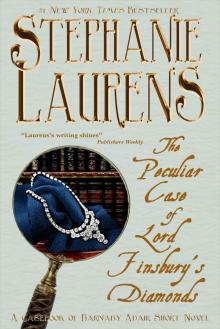 The Peculiar Case of Lord Finsbury's Diamonds: A Casebook of Barnaby Adair Short Novel (The Casebook of Barnaby Adair)
The Peculiar Case of Lord Finsbury's Diamonds: A Casebook of Barnaby Adair Short Novel (The Casebook of Barnaby Adair)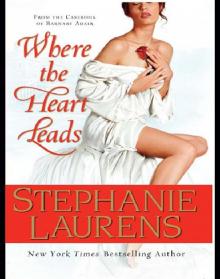 Where the Heart Leads
Where the Heart Leads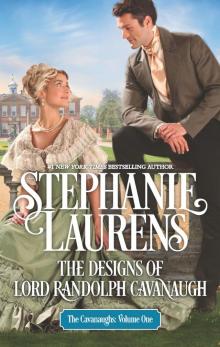 The Designs of Lord Randolph Cavanaugh
The Designs of Lord Randolph Cavanaugh A Secret Love c-5
A Secret Love c-5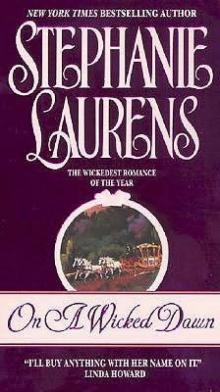 On a Wicked Dawn c-10
On a Wicked Dawn c-10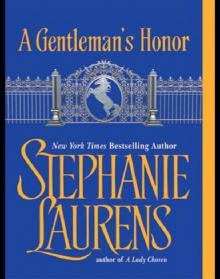 A Gentleman's Honor
A Gentleman's Honor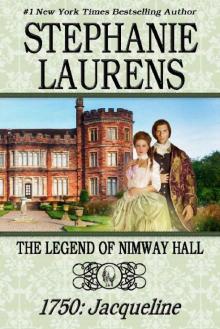 THE LEGEND OF NIMWAY HALL_1750_JACQUELINE
THE LEGEND OF NIMWAY HALL_1750_JACQUELINE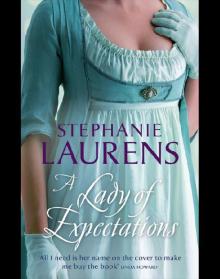 A Lady of Expectations
A Lady of Expectations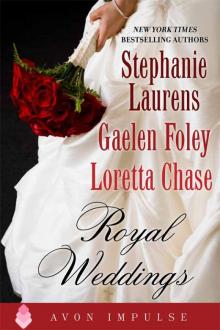 Royal Weddings: An Original Anthology
Royal Weddings: An Original Anthology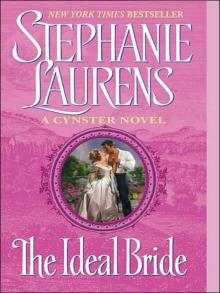 The Ideal Bride (Cynster Novels)
The Ideal Bride (Cynster Novels)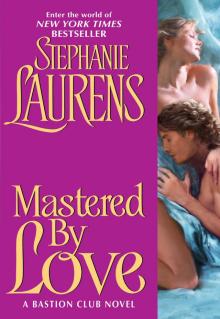 Mastered by Love
Mastered by Love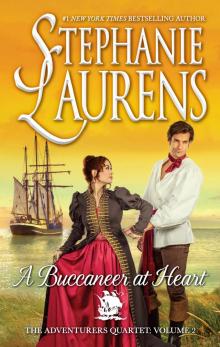 A Buccaneer at Heart
A Buccaneer at Heart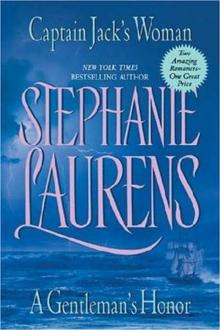 Captain Jack’s Woman / A Gentleman's Honor
Captain Jack’s Woman / A Gentleman's Honor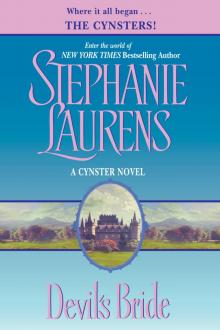 Devil's Bride with Bonus Material
Devil's Bride with Bonus Material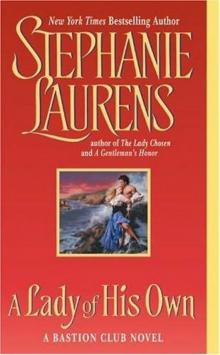 A Lady of His Own
A Lady of His Own A Secret Love
A Secret Love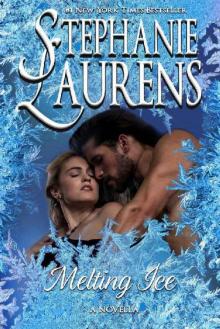 Melting Ice
Melting Ice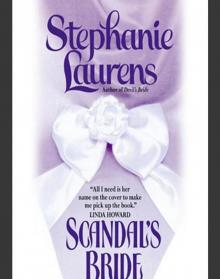 Scandal's Bride
Scandal's Bride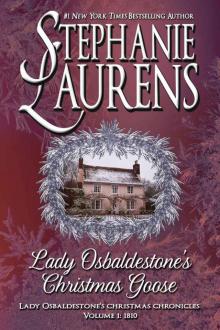 Lady Osbaldestone’s Christmas Goose
Lady Osbaldestone’s Christmas Goose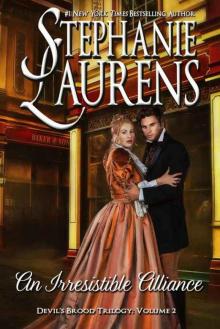 An Irresistible Alliance
An Irresistible Alliance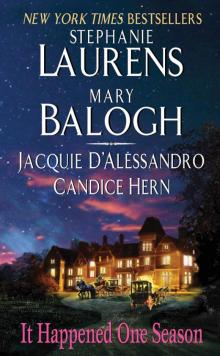 It Happened One Season
It Happened One Season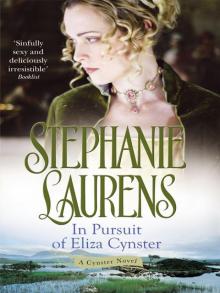 In Pursuit Of Eliza Cynster
In Pursuit Of Eliza Cynster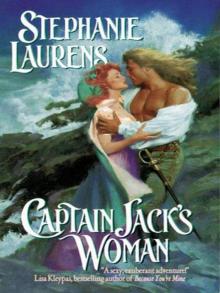 Captain Jack's Woman
Captain Jack's Woman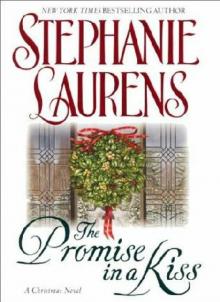 The promise in a kiss c-8
The promise in a kiss c-8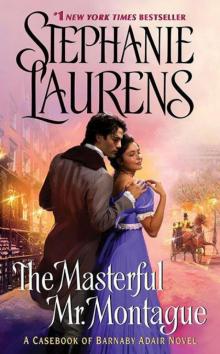 The Masterful Mr. Montague
The Masterful Mr. Montague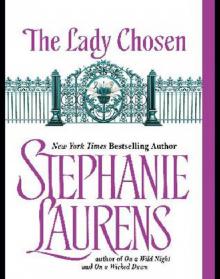 The Lady Chosen
The Lady Chosen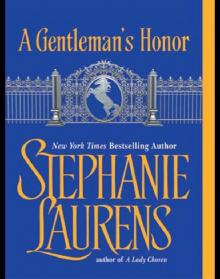 A Gentleman's Honor bc-2
A Gentleman's Honor bc-2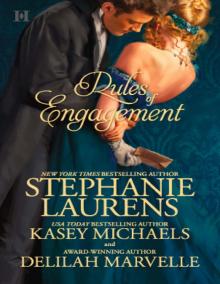 Rules of Engagement: The Reasons for MarriageThe Wedding PartyUnlaced (Lester Family)
Rules of Engagement: The Reasons for MarriageThe Wedding PartyUnlaced (Lester Family) Secrets of a Perfect Night
Secrets of a Perfect Night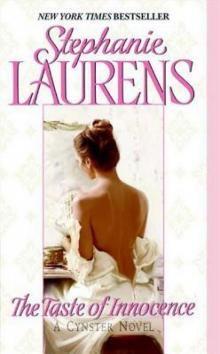 The Taste of Innocence
The Taste of Innocence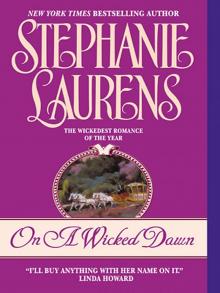 On A Wicked Dawn
On A Wicked Dawn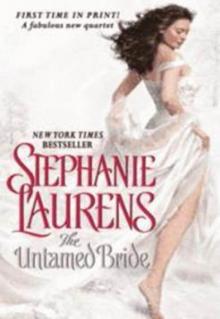 The Untamed Bride
The Untamed Bride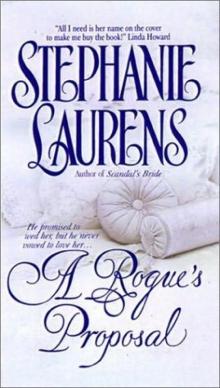 A Rogues Proposal c-4
A Rogues Proposal c-4 Rakes Vow c-2
Rakes Vow c-2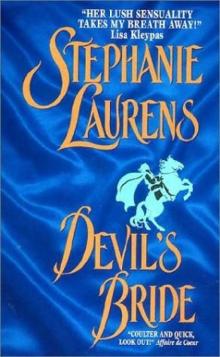 Devils Bride c-1
Devils Bride c-1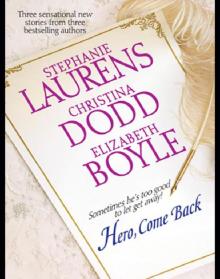 Hero, Come Back
Hero, Come Back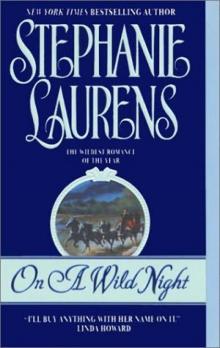 On a Wild Night c-8
On a Wild Night c-8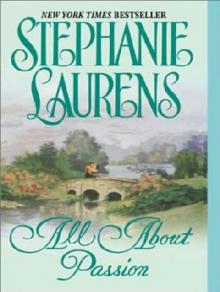 All About Passion c-7
All About Passion c-7